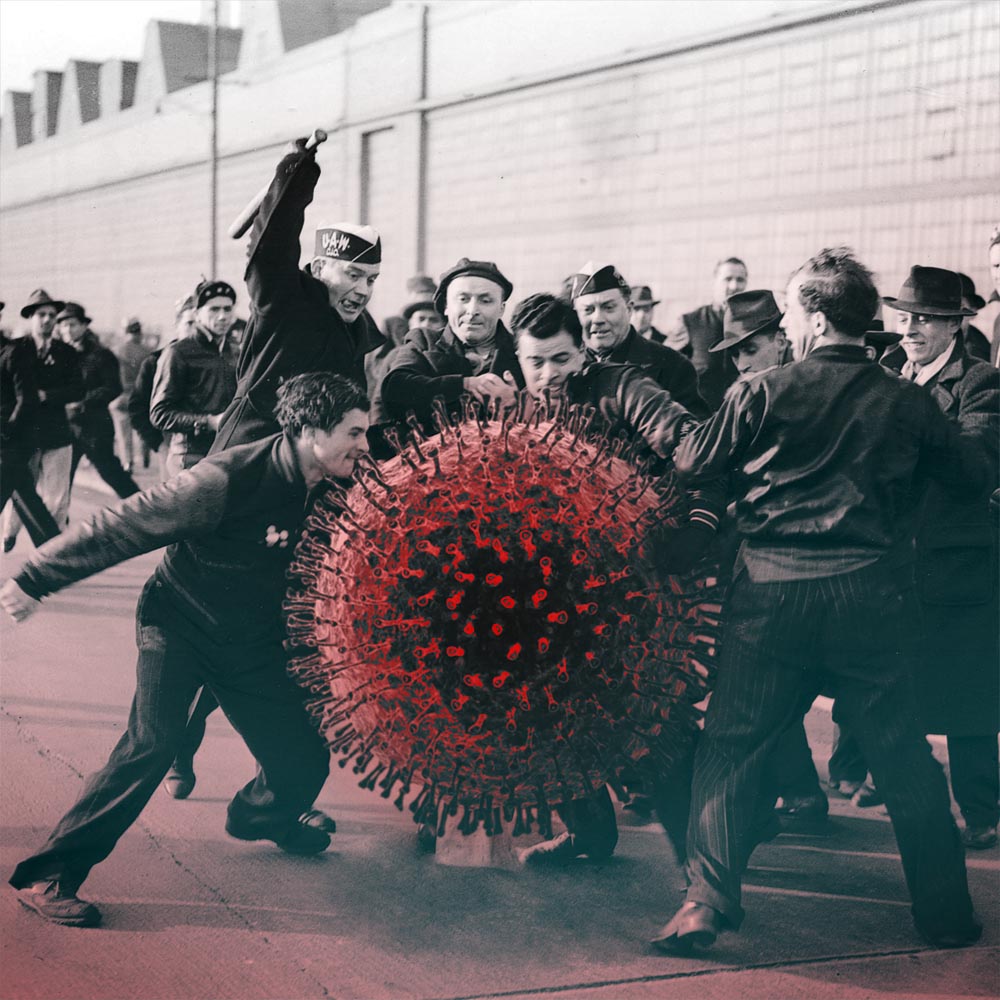Portugal // Coronavirus used to suspend the right to strike~ 5 min

By Duarte Guerreiro and Simone Vieira
After government hearings and with the support of parliament (with the votes in favor of the Socialist Party, Social-Democratic Party, Left Bloc, Democratic Social Center and People Animals Nature), the president of the Republic yesterday declared a state of emergency. This allowed the government to approve a decree that defines the legal terms in which the State may act during this emergency context. As in other countries, the current scenario of national and international public calamity served as pretext.
The state of emergency is essential for the government to be able to act beyond what is provided for in the constitution of the Portuguese Republic. The rights enshrined in it function, as some legal doctrines advocate, like a sun that radiates upon the legal system. A sun that is supposed to be untouchable. But using the fight against public calamity, the State can now apply measures that go against the constitution. This kind of framework serves to safeguard states and ensure that they do not apply unconstitutional measures because the unconstitutional becomes, in a manner, acceptable.
On the grounds of preventing the transmission and spread of the virus, the right of movement inside national territory has been limited, the right of international movement has been restricted, as well as the right of assembly and demonstration, while the right of resistance has been prohibited under the terms of this decree.
But there is more. The right to strike is now suspended.
The exercise of the right to strike shall be suspended insofar as it may compromise the functioning of critical infrastructure or health care facilities, as well as in economic sectors vital to the production, supply and provision of goods and services essential to the population;
In countries such as Spain, France or Italy, the suspension of this right was not given consideration because it is a constitutional right. Although they are among the countries with the highest number of coronavirus infections and deaths, they didn’t attack the fundamental right to strike. In fact, it has been crucial, for example in Italy, in allowing workers to look after the common good and close the business of employers excessively worried with their profits, who refused to close non-essential companies. The fact that the right to strike is also a constitutional right in Portugal has not left it safe from a government that calls itself “socialist”.
Suspending the right to strike means being complicit with calling into question the balance of power between workers and employers, increasing (even more) the vulnerability of the former. It is accepted that, in the midst of a public calamity, workers in vital sectors of the economy are subjected to greater exposure to the virus, but they are not allowed to resist and react if their rights as workers are denied.
The “socialists” who hate strikes
The decision to include restrictions to the right to strike during the state of emergency should be seen in the context of the recent history of the Socialist Party, in which it has been extremely active in attacking the right to strike, while also considering that there is currently an important Dockers Union (SEAL) strike going on [Update 2020/03/20 – The strike has been voluntarily suspended due to the emergency decree].
In its previous term of office, the Socialist Party chose to break a nurses’ strike through threats of mass disciplinary action, it tried to break a dockers’ strike by using scabs escorted by riot police and made abusive use of civil requisition to break the hazardous material drivers’ strike, in which the police and the Republican Guard hunted down disobedient strikers while the military were called in to replace hazardous material drivers in their routes.
The dockers’ strike at the Lisbon harbor started due to repeated and serious pay arrears, partial payments and refusal of contractual wage rises toward the dockers affiliated with the port labour company A-ETPL. For example, as of the middle of February, those affected were paid only 390€ for 45 days of work. Just over half of the national minimum wage for a month and a half of work.
Claiming financial difficulties, port operators now want to have the company declared insolvent, as a way to justify the firing of 54 dockers. Since the 17th that A-ETPL is stopping its workers from reaching their workplaces and carrying out the minimum services demanded of them, as part of a bosses’ lockout that is preventing the population from being supplied in times of pandemic.
The new emergency decree and its provisions for the suspension of strikes fit the Socialist Party like a glove, for it has long ago placed itself at the service of getting rid of the most organized and combative union organizations present in Portuguese workplaces.
If their intention was to safeguard the population’s well-being, the government should have long ago acted in situations of non-essential industries, such as call centers, where dozens of people work together in cramped spaces, breathing recirculated air and using biometric identification that requires everyone to paw at the same surfaces. This has happened despite the repeated alerts and complaints of unions such as STCC (Call Center Workers Union) that demand closures and remote work.




